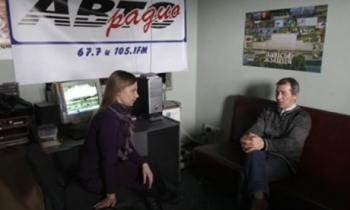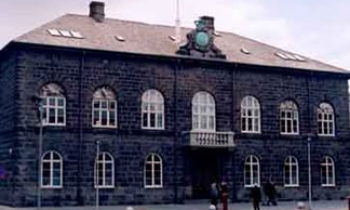Denmark, best known for its liberal welfare society, Lego, Carlsberg and voting no to EU treaties, has suddenly become the unlikely epicentre of an escalating conflict between the Western and Muslim worlds.
An outcry over a themed page last September on self-censorship and freedom of speech in Jyllands-Posten, Denmark’s biggest newspaper, featuring 12 cartoons of Prophet Mohammed, has this week snowballed into the country’s biggest international crisis in recent history.
Known more for its peacekeeping contributions than belligerence, some analysts say a conflict of cultures has been brewing in Denmark for some time. The country’s growing anti-immigrant sentiment and the hardline immigration policies of the centre-right government, led by prime minister Anders Fogh Rasmussen, have created tensions in the traditionally tolerant society.
The controversy has been escalating since October when Mr Rasmussen declined a request to meet a number of ambassadors from Muslim countries, who wanted to discuss the drawings of Prophet Mohammed. Images of the prophet are considered blasphemous under Islam.
Thomas Blach, sociologist of religion and managing partner at Firstline Communications, says Mr Fogh Rasmussen’s government, which relies on parliamentary backing from the nationalist Danish People’s Party, has underestimated the concerns over the drawings and should take the outcry as a cue to improve its relations with the local Muslim population.
"The government should focus on solving the problem here. After 9/11 George W. Bush took off his shoes and went for a meeting with the Muslim community in the US. It should be possible for Anders Fogh Rasmussen to do so, too," Mr Blach says.
Imam Abdul Wahid Pedersen, one of Denmark’s most prominent Muslim leaders, says: "It is not the pictures, it is the whole hostile environment in Denmark during the recent years. The pictures were just the last straw."
On Thursday, Mr Rasmussen bowed to the pressure and invited all the ambassadors in Denmark to hear his views on the freedom of expression yesterday.
Out of a population of 5.4m, there are 200,000 Muslims in Denmark. Until the 1960s, the country had mostly experienced immigration only from other European countries.
The polarisation of traditionally uniform Danish society is reflected in the recent rise of the Danish People’s party, a far-right populist party that holds 13 per cent of the seats in the parliament. As the centre-right government relies on its support, it has been able to push through strict immigration laws, including a rule that prevents Danish citizens aged 24 or younger from bringing their spouses from non-EU countries.
The crisis surrounding the cartoons has increased the popularity of the Danish Peoples’ party, many of whose most prominent members have made openly racist comments. Support for the party has jumped from 12 per cent to 14.5 per cent in the past month, according to Børsen, the business newspaper.
Although internationally Danes are known for their generous foreign aid and contributions to peacekeeping, the country’s foreign policy has changed in recent years. In 2003 Denmark entered the US-led war in Iraq and has since been one of Washington’s most loyal allies, which has sparked repeated threats from terrorist groups against the Nordic country.
Criticism from the opposition has been muted during the present crisis and most Danes seem to be taking the crisis calmly.
According to an opinion poll published in Børsen yesterday, 80 per cent of Danes think the Mohammed cartoons have damaged Denmark’s reputation. "The image of Denmark has been torn," Ole Wøhlers Olesen, senior adviser from the Danish Institute for International studies says.









